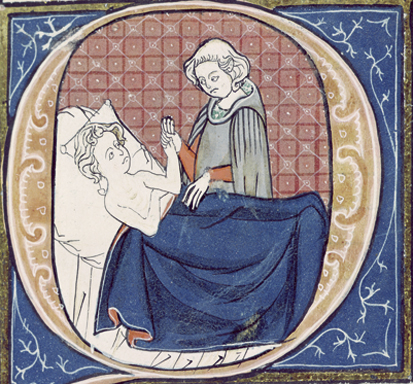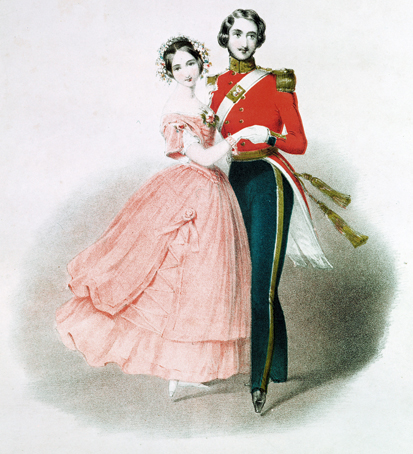In 1998, the Jamaican singer Bounty Killer released a single, ‘Can’t Believe Mi Eyes’, which expressed incredulity that men should wear tight trousers, because tight trousers are an effeminate display of gayness. Fear and loathing of homosexuals has a long history in the West Indies. Jamaica’s anti-sodomy laws, deriving from the English Act of 1861, carry a ten-year jail sentence for ‘the abominable crime’. Similar laws exist elsewhere in the Anglophone Caribbean, yet Jamaica is outwardly the most homophobic of the West Indian islands. A white man seen on his own in Jamaica is often assumed to be in search of gay sex. Batty bwoys (‘bum boys’) are in danger of being stoned, cutlassed or shot. In the beginning was Adam and Eve, say Jamaicans, not Adam and Steve.
Few can agree on the source of the homophobia, but Jamaican evangelical church groups have not helped: Pentecostalists and other holy-rollers have advocated burning homosexuals. Jamaican singers known for their anti-homosexual lyrics, most infamously Buju Banton and Beenie Man (‘I’m dreaming of a new Jamaica, come to execute all the gays’), have been refused entry by the British Home Office.
Of course Jamaica has a vibrant homosexual community, yet the consequences of being ‘outed’ are so dire that homosexuals may themselves resort to expressions of violent homophobia just to deflect attention. When, in August 1997, the Jamaican government announced that condoms were to be distributed in Jamaican jails as a preventative against Aids, all hell broke loose. The implication that a portion of prison life was homosexual was enough to turn ‘straight’ inmates against ‘chi-chi men’ inmates, 16 of whom were murdered in cell riots.
Bernadine Evaristo, in her funny, brave new novel, Mr Loverman (the title is taken from a Shabba Ranks reggae anthem), explores issues of homosexuality in the British West Indies and London’s West Indian diaspora community. Barry Walker, a dandified Antiguan with a taste for hand-made brogues and natty gold watchchains, leads a secret double life as a married man and homosexual (or, as he prefers to call it, ‘Barrysexual’). Jamaican dancehall stars like Buju Banton are roundly despised by Barry, yet he has no time for ‘gay-liberation’ movements or other ‘loony left’ antics. He can stand on etiquette and speak a strenuously clipped Queen’s English when he wants to. Respect for the British royal cult with its fripperies and rituals (increasingly meaningless to young West Indians) shows a proper ‘brought-upsy’ and old-school manners.
With his prim Caribbean wife Carmel, Barry had settled in the London borough of Hackney in the 1960s, and brought up two daughters amid the Rastafari and Hasidic believers of Stoke Newington. He retired from his job at Dagenham Motors, but now often dreams of his loverman Morris, a fellow Antiguan. Is it too late for him and Morris to come out? ‘We are not Elton John and David Furnish,’ says Barry; they are discreet, Caribbean-born, homosexual gentlemen of a certain age.
With his grammar school background, Barry likes to think of himself as ‘super lexical’, and pulls off amusing verbal thrusts and parries in conversation with his long-suffering wife, a Pentecostalist who insists on covering the household furniture in protective, ghetto-fabulous see-through plastic. How can Barry continue to live with this tiresome woman of evangelical proprieties and ‘sturdy architectural’ brassieres? In despair he drinks from bottles of Jamaican Appleton rum (‘guaranteed to dissolve the stressment’.) He and Morris have been lovers since their teenage years in Antigua: the pretence cannot go on. One day the truth is blurted out. ‘Yes, I am a cock-sucker,’ Barrington tells a Buju Banton fan at a party with drunken defiance. Now what? Death by stoning?
Evaristo, a London-born novelist of Nigerian ancestry, has written a book which few West Indians would dare to write. (According to a recent poll, 96 per cent of Jamaicans are opposed to any move to legalise homosexual relations.) Some readers may find the novel’s Jamaican-inflected dialogue and typographical eccentricities after B.S. Johnson a little contrived, but I loved Mr Loverman. It is to be hoped that Bounty Killer will read and enjoy this tender, even trailblazing novel (in or out of tight trousers).
Got something to add? Join the discussion and comment below.
Get 10 issues for just $10
Subscribe to The Spectator Australia today for the next 10 magazine issues, plus full online access, for just $10.
Ian Thomson is the author of The Dead Yard: Tales of Modern Jamaica.
You might disagree with half of it, but you’ll enjoy reading all of it. Try your first month for free, then just $2 a week for the remainder of your first year.










Comments
Don't miss out
Join the conversation with other Spectator Australia readers. Subscribe to leave a comment.
SUBSCRIBEAlready a subscriber? Log in